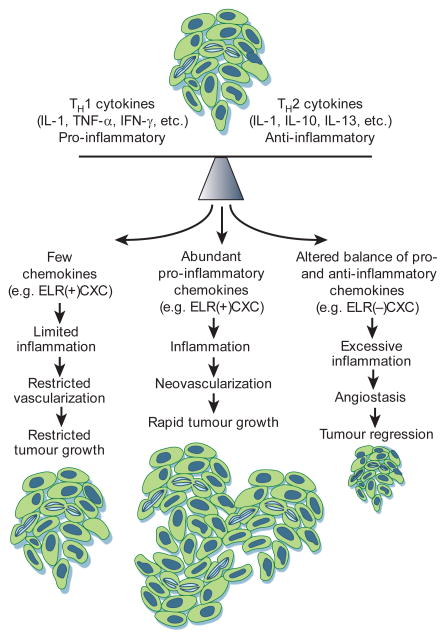Figure 2.
Cytokine and chemokine balances regulate neoplastic outcome. The balance of cytokines in any given tumour is critical for regulating the type and extent of inflammatory infiltrate that forms. Tumours that produce little or no cytokines or an overabundance of anti-inflammatory cytokines induce limited inflammatory and vascular responses, resulting in constrained tumour growth. In contrast, production of an abundance of pro-inflammatory cytokines can lead to a level of inflammation that potentiates angiogenesis, thus favouring neoplastic growth. Alternatively, high levels of monocytes and/or neutrophil infiltration, in response to an altered balance of pro-versus anti-inflammatory cytokines, can be associated with cytotoxicity, angiostasis and tumour regression. In tumours, interleukin-10 is generally a product of tumour cells and tumour-associated macrophages.

